Thank you for downloading this Simon & Schuster ebook.
Get a FREE ebook when you join our mailing list. Plus, get updates on new releases, deals, recommended reads, and more from Simon & Schuster. Click below to sign up and see terms and conditions.
CLICK HERE TO SIGN UP
Already a subscriber? Provide your email again so we can register this ebook and send you more of what you like to read. You will continue to receive exclusive offers in your inbox.
INTRODUCTION
Its time to get the most out of your gray matter!
For centuries people have been looking for ways to keep their minds healthy and strong, and you can do it too. In fact, boosting your brain power has never been easier. The brain hacks in this book will help you focus longer, improve your memory, stay on your game, and keep your brain as healthy as it can be no matter your age.
Youll find more than 200 hacksall ones you can try right awaythat will help you do everything from building your memory to rejuvenating and stimulating your mind. From foods that can protect your brains health to activities that will boost your brain power, the hacks in this book will help your brain become more fit and function better. You should see an improvement in your performance in all areas of your life, be it at work or at home.
Youll find hacks that describe what you should eat for optimum brain health, show you what activities to do (and which to avoid) to keep your brain engaged, and the best practices, according to current research, for making sure youre taking good care of those three pounds of gray matter. Whether you do one hack or all of them, this book is here to help you create a happier, healthier brain!
HACK 001
FEED YOUR BRAIN
Boost your brain power with the right food. Eat plant-based foods and healthy fats. Cut back on animal products and saturated fats (typically, solid fats like lard and butter), because saturated fats slow down your cognitive function. The nutrients found in plants, by contrast, support memory retention and help lower blood pressure (hypertension affects your brain as well as your heart). Standout stars? Beans and green, leafy vegetables.
Ten Foods to Favor
1. Beans and other legumes
2. Coconut oil
3. Fish, especially fatty fish like tuna and salmon
4. Green, leafy vegetables (e.g., spinach, kale, lettuce, and arugula)
5. Nuts, either raw or dry roasted
6. Olive oil
7. Cruciferous (cabbage family) vegetables (e.g., cauliflower)
8. Lean poultry, such as skinless chicken and ground turkey
9. Whole grains
10. Wine, either white or red (but not too much!)
Five Foods to Forget
1. Butter and margarine
2. Cheese
3. Fried foods
4. Pastries and desserts
5. Red meat, especially high-fat processed meat like bacon, sausage, and salami
According to research, the more closely you stick to a plant-based diet, the more positively you will affect your brain health.
HACK 002
WATCH THE ALCOHOL
Drinking too much alcohol slows your reactions, impairs your judgment, and can even cause blackouts and memory lapsesand thats just on a Friday night. In the long term, alcohol abuse can cause permanent brain damage. The National Institute of Alcohol Abuse and Alcoholism reports that long-term drinking can actually shrink your brain! It also creates problems with the structures that carry information between brain cellsmaking it harder for you to think and react even when youre stone-cold sober. Because heavy drinkers often have poor diets, dietary deficiencies may also harm the brain. Consume alcohol in moderationpreferably no more than two drinks per day for men and one drink per day for women.
HACK 003
UP YOUR OMEGA-3S
Your brain needs omega-3 fatty acids to function, but your body cant produce them. That means you have to get them from your diet. Two 2017 brain studies from the University of Illinois at Urbana-Champaign suggest that eating omega-3 fatty acids may improve memory retention and strengthen the structures responsible for fluid intelligence (the ability to solve new problems). The new research supports the idea that upping your intake of these fatty acids can slow age-related cognitive decline.
In addition, researchers at Harvard University found that omega-3 fatty acids may interfere with the brain signals that trigger the characteristic mood swings seen with bipolar disorder. If these findings hold true in future studies, omega-3 fatty acids may have implications for treating other psychiatric disorders, such as depression and schizophrenia.
Some studies have found that omega-3s can significantly decrease triglyceride levels, lower blood pressure, and reduce blood levels of homocysteine, high levels of which are associated with an increased risk of stroke, Alzheimers disease, and other brain problems.
Foods rich in omega-3 fatty acids include:
 Flaxseed (linseed), soybean, and canola oils
Flaxseed (linseed), soybean, and canola oils
 Cold-water fatty fish, like salmon, tuna, and sardines
Cold-water fatty fish, like salmon, tuna, and sardines
 Certain fortified dairy and soy products (look for fortified dairy products by brand)
Certain fortified dairy and soy products (look for fortified dairy products by brand)
 Nuts, especially walnuts
Nuts, especially walnuts
 Legumes, such as pinto beans and peas
Legumes, such as pinto beans and peas
Your body needs more than one type of omega-3 fatty acid, so eat a variety of these foods every chance you get. You can also supplement with 10 grams of fish oil a day.
HACK 004
MAKE A TO-DO LIST
Writing a to-do list may not seem like much of a brain booster, but it is. Figuring out your priorities and filtering out the nonessentials are higher-level cognitive tasks, and practicing these skills keeps your brain in top-notch shape. Also, translating a big-picture problem or goal (Get ready to file taxes) into its smaller tasks (Find my W-2 and Get recommendations for which tax software to use) is another executive function. Making a to-do list creates mental space for doing other tasks, not just remembering the various things you have to do. Plus, using a to-do list can make you feel good: one study showed that you get a little dopamine rush every time you cross a task off your to-do list (dopamine makes you feel good, elevating your mood). You should list even small tasks just for the reward of marking through them. One researcher explained that the frequency of progress is more important to your brain than how big the progress is. Practically speaking, this means crossing off Empty the dishwasher, Wipe the counters, and Sweep the floor is way more satisfying than crossing off Clean the kitchen. (By the way, writing down something youve already done and then crossing it off creates the same happy feeling.)
HACK 005
STRESS LESS
Stress makes your brain think youre in danger. It responds by maintaining a high state of alertness and producing chemicals called glucocorticoids. If nothing tells your brain, The danger has passed, those chemicals keep streaming through your blood. In effect, they become toxic to your brain. A brain on high alert is focused on survival, and thus has no time for rest and regeneration.
Next page


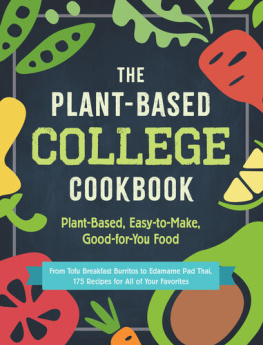
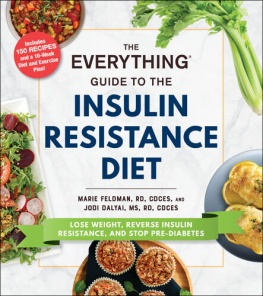
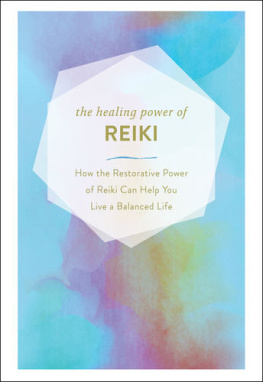

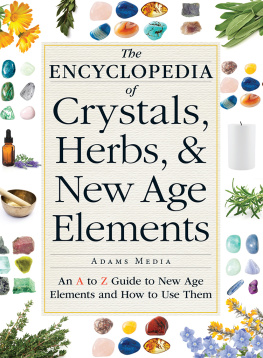
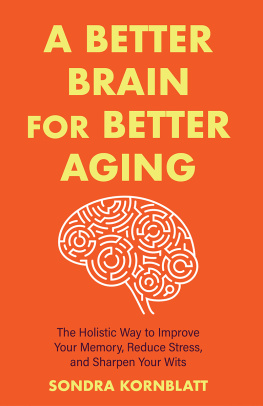
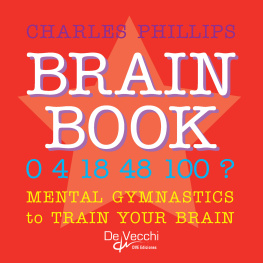
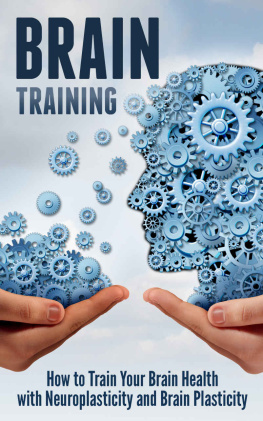
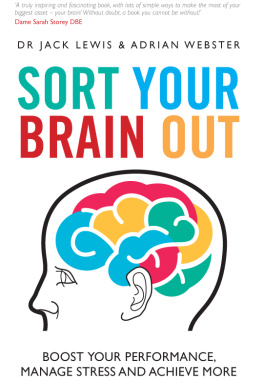
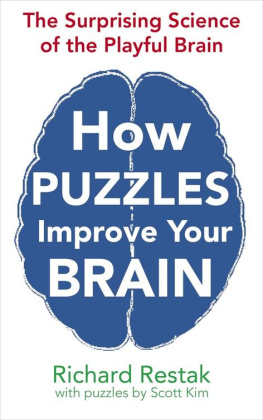
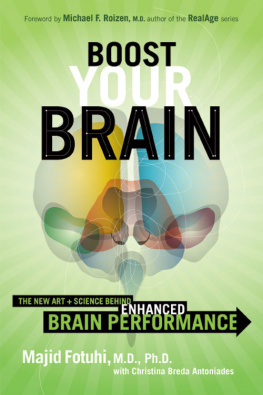


 Flaxseed (linseed), soybean, and canola oils
Flaxseed (linseed), soybean, and canola oils